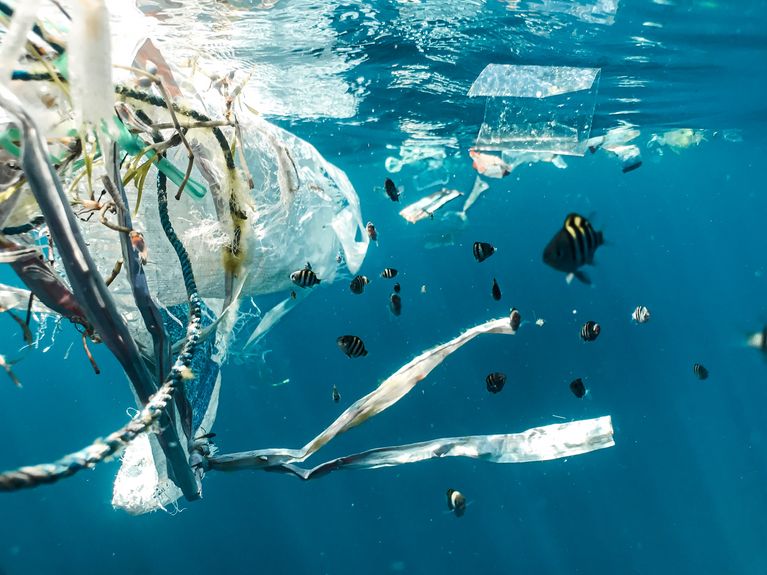
Challenge #75
New recyclables from plastic waste.
Using bacteria and enzymes to combat plastic waste: At Helmholtz, we are developing new recycling technologies to create a sustainable circular economy for plastics.
Participating centers
It is hard to imagine our everyday life without plastic in all its forms. However, for a long time now, we also find plastic waste in the environment everywhere we look – in the desert, in the Antarctic, or in the deep sea. We show how natural processes can help solve this waste crisis.
At Forschungszentrum Jülich, we are isolating microbes and enzymes that degrade plastics from a wide variety of habitats. At the moment, they still only do this rather sporadically – plastic is too young a material for enzymes or microorganisms to have evolved to use it already. But with modern methods of molecular biology, we can specifically improve these characteristics in our laboratories. The enzymes thus obtained break down plastic and release its molecular building blocks.
We are able to refine these building blocks through customized microbial cell factories into a variety of chemical building blocks and natural products of high value (“bio-upcycling”). This biotechnology thus turns discarded plastic back into an important recyclable material, thereby making the waste crisis that much more manageable.
(Photo: Naja Bertolt Jensen/Unsplash)